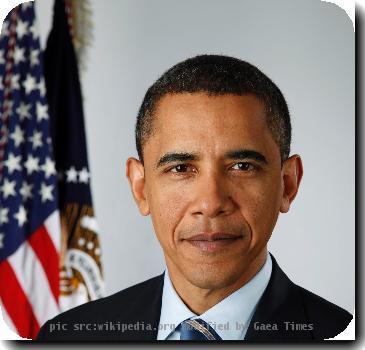WHITE HOUSE NOTEBOOK: Obama in Prague _ no crowds, tight security, and underwhelmed Czechs
By Jennifer Loven, APThursday, April 8, 2010
WHITE HOUSE NOTEBOOK: Obama in Prague
PRAGUE — What’s one thing President Barack Obama and heads of state from central and eastern Europe can agree on?
Chicken.
Staff for Obama and the 11 leaders he was hosting for dinner in the Czech Republic Thursday night discovered that chicken was the only entree option that met the dietary restrictions and personal preference of all the presidents and prime ministers on the guest list.
Earlier in the day, Obama did get a taste of traditional Czech cuisine during a lunch of beef steak with mushrooms and dumplings, pumpkin soup, and sorbet, along with a selection of Czech beer and local wines.
Doctors have repeatedly warned Czechs to cut back on their high fat-cuisine. It’s unclear what Obama’s doctor would have thought of the lunch after diagnosing the president with high cholesterol earlier this year.
What a difference a year makes.
Just 12 months ago, a boisterous crowd of 20,000 hailed President Barack Obama as he outlined his vision of a world free of nuclear weapons in one of Prague’s main squares.
Obama returned Thursday to sign a landmark nuclear arms reduction treaty with Russian President Dmitry Medvedev. So where were his fans? The only gatherings of note were crowds of tourists swarming the ancient city’s landmarks. Of course, it might have been awkward to stage the signing ceremony outdoors before a big audience in a place where Medvedev isn’t exactly popular.
Last year, Obama used his Prague stop, during a trip to Europe, to spread his nonproliferation message as the new man in the White House. With no need for that now, there were no provisions made for Obama to meet the Czechs.
He returns Friday to the U.S. after the signing, talks with Medvedev, the dinner with the new EU and NATO member nations and meetings with the Czech president and prime minister.
Not that most Prague residents seemed to miss a chance to meet with Obama.
For most, it was business as usual Thursday, with many shrugging off the historic significance of the signing.
“I believe when final decisions are made about whether to intervene in another country, it will happen no matter the accords,” businessman Martin Bistrai told The Prague Post.
“If someone wants to shoot someone, they will do it, especially the Russians,” he said, reflecting traditional suspicions of Moscow in a part of the world that was in the Kremlin’s orbit for nearly half a century.
For homemaker Ivana Molnarova, the signing was notable, “but I have more important business to look after: my maternal duties.”
Lton Iljazi, an Albanian living in Prague, was also dismissive.
“I am 27 years old, and I have been on the streets since I was 14,” said Iljazi, who distributes flyers for a living.
“Neither Obama nor Medvedev … make any significant impact on my life or help me in any way,” Iljazi said.
Prague’s medieval castle, the venue for the signing, is a special chateau even on a continent studded with them.
The castle, the most treasured Czech symbol and the seat of the president’s office, was founded in the ninth century. It is among the treasures on UNESCO’s list of World Heritage sites.
Perched on a hill overlooking the capital and the Vltava River that slices through it, the castle is actually a sprawling combination of palaces and ecclesiastical buildings of various architectural styles, including Romanesque, Gothic, Renaissance and Baroque.
Its most visible monument, St. Vitus Cathedral — where five saints are buried alongside Czech kings — dates to the 10th century.
The Spanish hall, where the two presidents signed the treaty, is a crown jewel of the castle complex. Built in the 17th century for Emperor Rudolph II, the huge hall is decorated with gilt and stucco, 19th century statues and huge crystal chandeliers.






